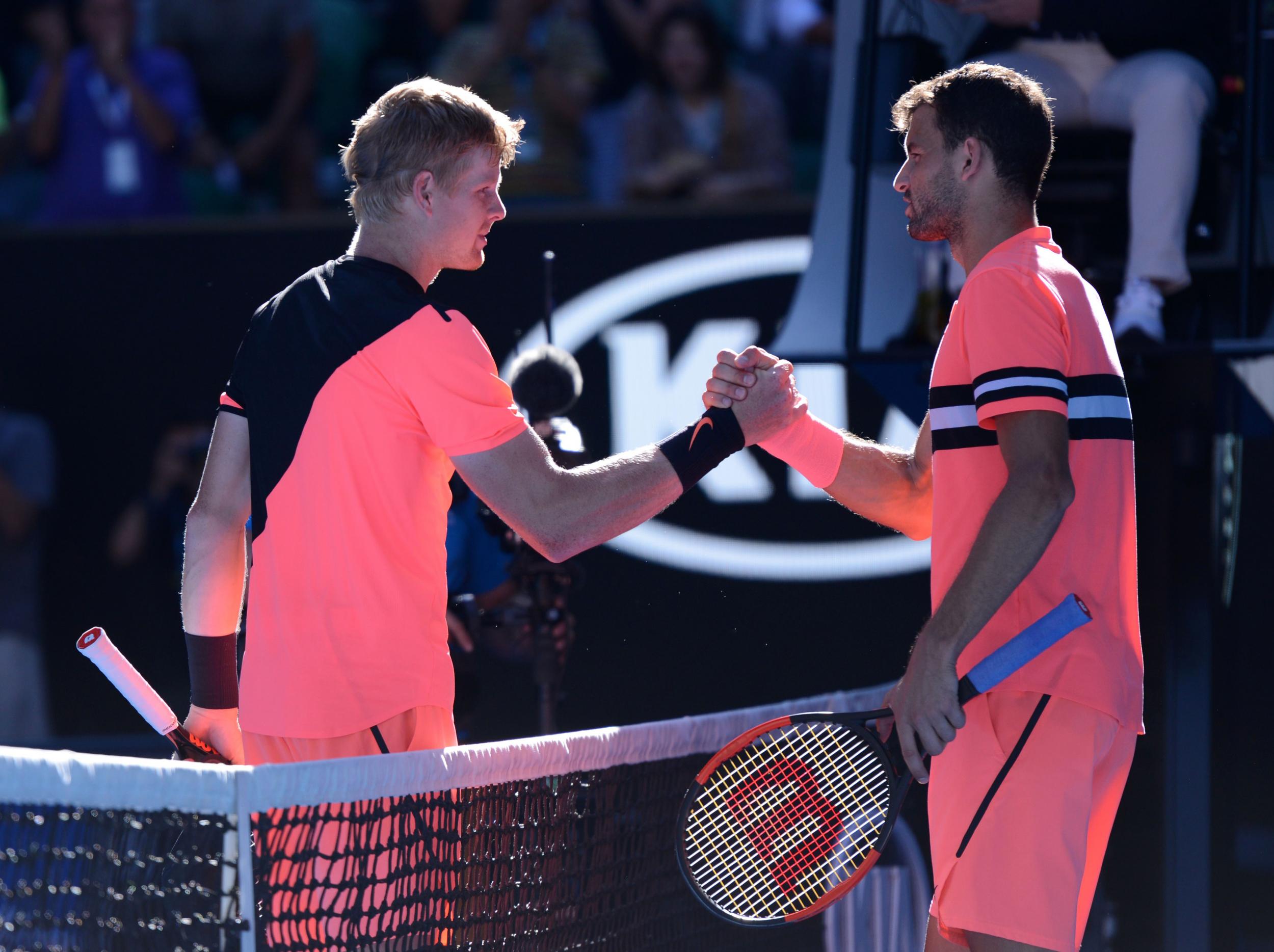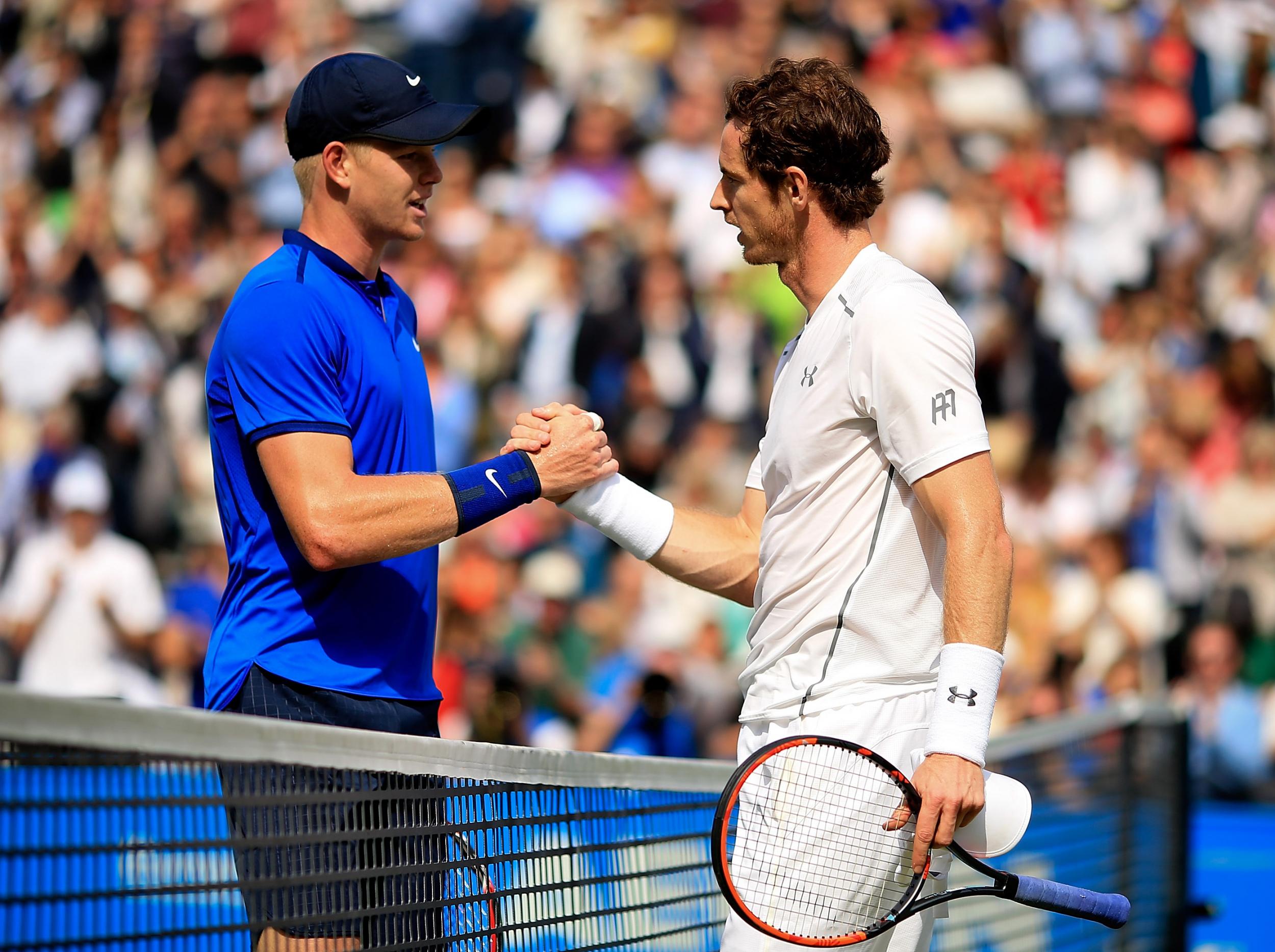From ‘helpless’ to hero: How Kyle Edmund battled past his own demons to stand on the verge of history
Australian Open 2018: Remarkably, Edmund he is now just two matches away from becoming the first British man to win in Melbourne since Fred Perry in 1934

Your support helps us to tell the story
From reproductive rights to climate change to Big Tech, The Independent is on the ground when the story is developing. Whether it's investigating the financials of Elon Musk's pro-Trump PAC or producing our latest documentary, 'The A Word', which shines a light on the American women fighting for reproductive rights, we know how important it is to parse out the facts from the messaging.
At such a critical moment in US history, we need reporters on the ground. Your donation allows us to keep sending journalists to speak to both sides of the story.
The Independent is trusted by Americans across the entire political spectrum. And unlike many other quality news outlets, we choose not to lock Americans out of our reporting and analysis with paywalls. We believe quality journalism should be available to everyone, paid for by those who can afford it.
Your support makes all the difference.On September 1 2017, a red-eyed Kyle Edmund slumped into his seat, rested his head on his left hand and proceeded to pour his heart out in front of a handful of journalists. He had just retired hurt in the third round of the US Open, while trailing the talented 18-year-old Denis Shapovalov. It was his tenth match in a fortnight and his aching body had let him down.
“That was just a horrible way to go out really, wasn’t it?” he said quietly, as those gathered in front of him held their breath. “It’s a tough thing to go out on a centre court, like, the biggest court in the world, and just feel a bit helpless. What do I do, like, do you carry on until the end? But you just go through the emotions and it’s a bit of a sorry state.”
Edmund’s talent was never in doubt. His forehand is one the most devastating weapons on tour, a full throttle power chord of a shot that former world number one Mats Wilander recently described as “the best in the world.” He has an increasingly dependable serve and his attritional style makes his exceptionally tough to beat from behind the baseline.
But his mental approach, that great abstract of the sport, invited questions. Born in Johannesburg but raised in Beverley, East Yorkshire since the age of three, Edmund is laid-back and self-effacing, mature beyond his years when compared with many of his contemporaries. And yet, last season in particular, he threw away a number of close matches from winning positions, time and again struggling to haul himself over the line.
In tennis, more so than any other sport, a player’s mental strength is ruthlessly scrutinized – as they duel with a solitary opponent, often for hours, in isolation from coaches and guidance – and so at the top level fortitude is deemed just as valuable an attribute as a flat forehand. At the end of 2017, Edmund recognised that he needed to make changes, and linked up with the experienced coach Fredrik Rosengren to overhaul the mental side of his game.
The Swede knew what he had to do. “We talked a lot about this: to play to win, not to play to avoid losing, to have the heart,” Rosengren explained to Paul Newman in Melbourne. “You will not win every time, but you have to go out there and get it because these guys will not give it to you to free. You have to believe you can do it in tough situations, serving out sets and matches. It is all about the mindset.”
Whatever the nuances of what Rosengren told Edmund – it worked. The 23-year-old, who until recently had only reached the fourth round of a Grand Slam once – losing in straight sets to Novak Djokovic at Flushing Meadows in 2016 – is now into the semi-finals of the Australian Open. On Tuesday he beat a top-ten player for the first time and, with two more wins, he will become the first British man to win in Melbourne since Fred Perry, in 1934.

The rate of his improvement has been nothing short of remarkable. Last season he won just seven of 25 deciding sets: in 2018 he has already won four out of five. And forget talk of a kind draw: he has had to fight tooth and nail for his place at the business end of the tournament.
Although he has avoided the likes of Roger Federer, Rafa Nadal and Djokovic en route to the semi-finals, 2017 US Open finalist Kevin Anderson – who he beat in the first round – and World Tour Finals winner Grigor Dimitrov – who he beat in the quarter-final – are sizable scalps. Meanwhile Denis Istomin, Nikoloz Basilashvili and Andreas Seppi , who he dispatched in between, possess far more Grand Slam experience. And then there is Marin Čilić, who stands in the way between him and the final.
Rosengren hasn’t only been working with Edmund on the mental side of his game. His serving technique has also been remodelled, leading to noticeable improvements. His serve placement in Melbourne has been much better, with the sliced serve on the deuce side a dangerous new weapon. And his forehand has been as destructive as ever: no player has hit more forehand winners than he has managed.

If there has been one minor drawback to Edmund’s time in Melbourne, it has been the inevitable series of questions about Andy Murray. Every interview he has given over the past two weeks has featured at least one remark about the absent hero, and Edmund can be forgiven for tersely replying” I don’t really understand the question: do you feel the pressure of the nation?” after his win over Seppi.
In fact, Edmund’s rapid rise arguably has more in common with a different British number one. Johanna Konta was another to make dramatic improvements after completely overhauling her mental approach and she too enjoyed a run to the semi-finals of the Australian Open, which served to announce her arrival at the top-tier of the sport.
Having felled the likes of Venus Williams and Ekaterina Makarova, Konta eventually lost in straight-sets to the eventual champion, Angelique Kerber. Edmund's task is equally difficult: Čilić is ranked sixth in the world, reached the Wimbledon final last year and won the US Open in 2014. But even if his run is ended by the Croatian, Edmund can use this tournament as Konta did; as a starting point. His run has been anything but a flash in the pan: this could be the start of something special.
Join our commenting forum
Join thought-provoking conversations, follow other Independent readers and see their replies
Comments